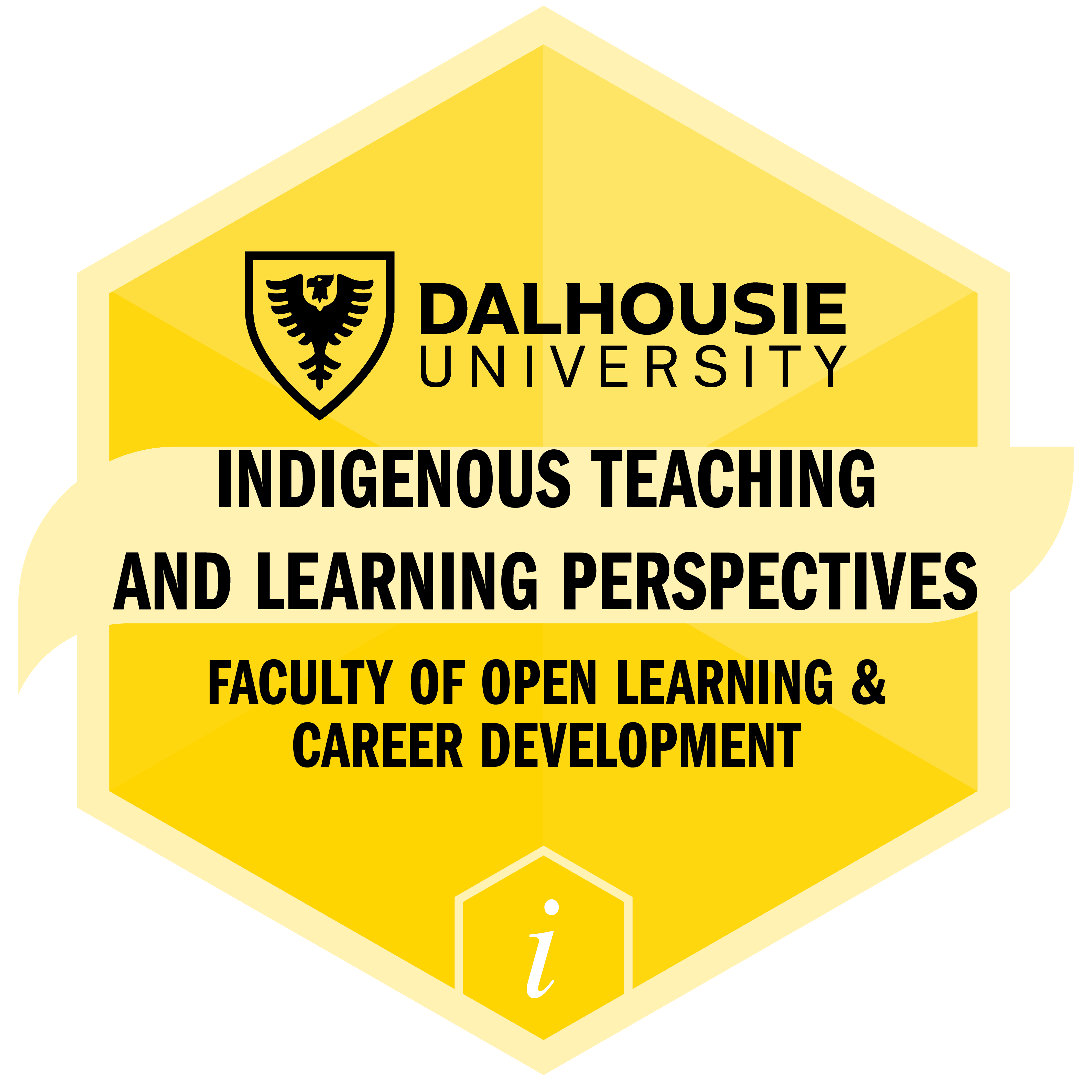Course Description
Course Outline
- Module 1: History of Indigenous Education
- Module 2: The Learning Spirit
- Module 3: Indigenous Ways of Learning and Teaching
What You Will Learn
Upon completion of this course, learners will be able to:
- identify the key periods of Indigenous Education post colonization;
- explain the concept of intergenerational trauma as it relates to Indian Residential Schools;
- distinguish the similarities and differences between Indian Residential Schools and Day Schools;
- discuss the benefits of Indigenous controlled education;
- distinguish the difference between western knowledge attainment and Indigenous learning;
- explain the concept of Etuaptmumk;
- discuss the importance of decolonizing education;
- describe the importance of mentoring and apprenticeship;
- explain how storytelling is a vital aspect of Indigenous teaching and learning;
- discuss the importance of community service to Indigenous teaching and learning;
- exchange ideas and methods for an inclusive classroom.
Microcredential
 This course provides learners with the opportunity to earn a microcredential. A microcredential is evidence of a skill or competency that is employment related. Dalhousie microcredentials are developed in collaboration with employers, industries, and/or organizations that relate to the content. A microcredential can be displayed on social media pages, digital resumes, personal webpages, and in email signatures. To earn the microcredential in this course, learners will need to successfully complete a competency-based assessment.
This course provides learners with the opportunity to earn a microcredential. A microcredential is evidence of a skill or competency that is employment related. Dalhousie microcredentials are developed in collaboration with employers, industries, and/or organizations that relate to the content. A microcredential can be displayed on social media pages, digital resumes, personal webpages, and in email signatures. To earn the microcredential in this course, learners will need to successfully complete a competency-based assessment.
Notes
For assistance or more information, please contact openlearning@dal.ca.
The Faculty of Open Learning and Career Development recommends an intermediate level of English language proficiency for the most effective learning and participation in our online and face-to-face courses. A list of minimum recommended scores on some common English tests can be found on our website. If you have questions about your English language proficiency and ability to succeed in this course, please contact openlearning@dal.ca.
Recommended For
- Those interested in working in the field of adult education (training, facilitation, coaching, mentoring, etc.)
- Those interested in learning about Indigenous ways of teaching and learning
- Those interested in exploring the impact of the Residential School System on Indigenous peoples and their ways of teaching.
Testimonials
"Every educator, facilitator, teacher, or trainer should take this course. It is difficult to explain the impact this course has had on me personally and professionally. I am excited to apply this learning in as many ways as I can. Jude Gerrard was an exceptional instructor, truly embodying what it means to value different learning perspectives and spark thought in adult learners."
~ Kelly Wamboldt
Applies Towards the Following Certificates
- Certificate in Adult Education : Required
- Certificate in Advanced Fire Service Administration : Electives
- Diploma in Executive Fire Leadership : Electives
- Diploma in General Fire Leadership : Elective - Certificate in Advanced Fire Service Administration